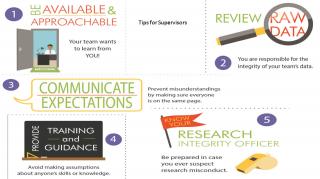This is the fifth blog in our series summarising the experience of the SUEUAA team in Manila, the Philippines. The visit to the Philippines marked the halfway point in our study, and consisted of a team meeting with the international team members, a symposium for external audience from the Philippines who are interested in closer working relationships between Universities and the City, and a city tour for the team members to receive a first hand experience of some of the issues affecting Manila.
On the third day of the meeting, Dr Jo Neary and Dr Muir Houston delivered two capacity building workshops to the Manila event delegates. Capacity building and knowledge exchange is at the heart of the SUEUAA programme, and we ensured that the event in Manila had adequate time allocated for this purpose.
Dr Jo Neary spoke on the topic of community engagement in research settings. The presentation began with an acknowledgement of the inspiring community engagement work discussed by the Manila speakers on the previous day (this work will be the subject of a future blog). Dr Neary reflected that much of the work that Manila is doing engaging with communities was inspiring and that there was much the UK could learn from their city regarding how best to interact with city populations. Therefore instead, the workshop looked specifically at engaging with communities for research purposes.
A purposeful attempt was also made for all examples in the presentation to be located within the Global South, a focus on community focused research in African and Asian cities, rather than on UK populations. Dr Neary commented that in literature, there is a lack of agreement as to the definition of 'community'. This poses a challenge for academics who are investigating examples of impactful community engagement'. Community engagement in research is therefore context specific: dependent on population, place, research topic, and time.
She also highlighted the inherent power imbalance within community engagement, specifically where it is the academic team driving the engagement- they control who is spoken to and therefore how the solution is created. This therefore requires a research process that is participatory, to ensure the voice of the community is central. Dr Neary went on to speak about the creative methods of engaging with groups: drawing, visual mapping, theatre; using examples from Nepal (Aagget, 2018) and Western Kenya (Kamanda et al, 2013). These examples included both discussions of creative methods, but also the barriers faced by researchers in utilising these methods. The group discussions that followed queried the utility of creative methods for their populations, and whether the speakers had previous personal experiences of using them.
Dr Muir Houston spoke on the topic of research governance, research integrity, and research ethics, and highlighted the practices underpinning these activities. Dr Houston described research governance as the framework of regulations, principles, and standards of good practice that exist to achieve and continuously improve research quality. In terms of how this is achieved, Dr Houston spoke about the need in academia to allow training for both staff and students to understand the ethics of research in order to address any issues of research misconduct. Examples of consent forms and information sheets were distributed to the audience, with Dr Houston asking whether these forms of communication would be applicable to the social research conducted in PNU.
The audience, a combination of academics, individuals working in local government, and charities, were interested by the issues raised by the presentation. One individual from the education department in local government described the aspirations of local Universities to develop internationally impactful research, and obtain publications in high ranking journals. This led to a discussion of the central position of ethics and transparency of methods, with the comment by Dr Houston that if academics in Manila wish to be published in international journals, they will have to ensure their research governance and ethical procedures are transparent, and offer relevant protections to the sample populations.
Discussion followed regarding the barriers for research governance and informed consent, particularly the illiteracy rates of some populations (meaning the plain language statement would not be appropriate), and the lack of ethics committees who could serve an increase in applications. One audience member suggested there was only one research committee serving the city, and they travel to different universities. This is very different to the experience of Universities in the UK, where every department and institution have research governance embedded in their staff culture and academic practice.

